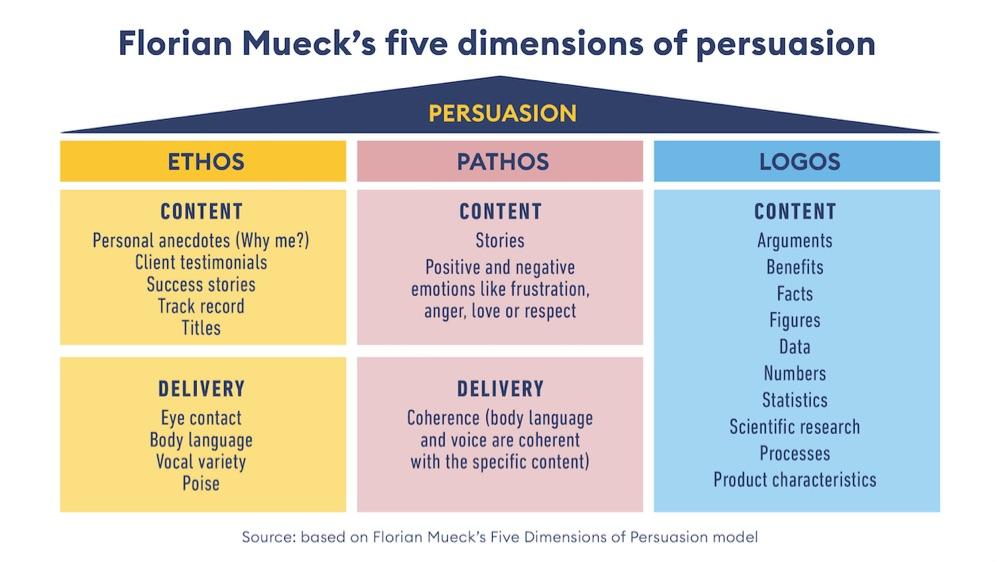Aristotle’s 3 Modes Of Persuasion
Aristotle’s three “modes of persuasion, furnished by the spoken word” – ethos, pathos and logos – offer a practical framework that can set us on the path to presenting success.
- Ethos depends on the personal character of the speaker – what we bring through our personality, experience and credentials.
- Pathos is about putting the audience into a certain frame of mind – how we can make an emotional connection with them.
- Logos is based on the proof, or apparent proof, provided “by the words of the speech itself” – what we want to say and how we’ll structure and present it; our reasoning.
175
1.11K reads
CURATED FROM
IDEAS CURATED BY
On presenting, appealing, persuading, influencing and communicating, and on seeing presentations as an ebb and flow caused by our own gravity, a tide under our control and to our service, not the other way around.
“
The idea is part of this collection:
Learn more about psychology with this collection
How to challenge assumptions
How to generate new ideas
How to break out of traditional thinking patterns
Related collections
Similar ideas to Aristotle’s 3 Modes Of Persuasion
Florian Mueck’s 5 Dimensions Of Persuasion
So far, so good. But when it comes to creating and delivering a presentation ourselves, it’s useful to think about how these classic modes of persuasion might be used in practice.
Author and consultant Florian Mueck suggests that we look at the three modes in a slightly different way to hel...
Building Presentations Stage 2: Arrangement
In this stage, we’ll marshal our old friends ethos, pathos and logos to craft and structure what we want to say. Flintoff encourages us to focus on what he calls “Really Interesting Proofy Evidence Stuff”, creating an outline or summary of the main argument and how it’ll...
So, Is Ethos Always Fixed In The Recipe?
Despite Aristotle’s bold claim that ethos is the most important element of communication, we won’t get far if we can’t marshal the argument – the proof – that logos implies. However we choose to marshal our thoughts and hone our argument, we have to get our facts straigh...
Read & Learn
20x Faster
without
deepstash
with
deepstash
with
deepstash
Personalized microlearning
—
100+ Learning Journeys
—
Access to 200,000+ ideas
—
Access to the mobile app
—
Unlimited idea saving
—
—
Unlimited history
—
—
Unlimited listening to ideas
—
—
Downloading & offline access
—
—
Supercharge your mind with one idea per day
Enter your email and spend 1 minute every day to learn something new.
I agree to receive email updates
